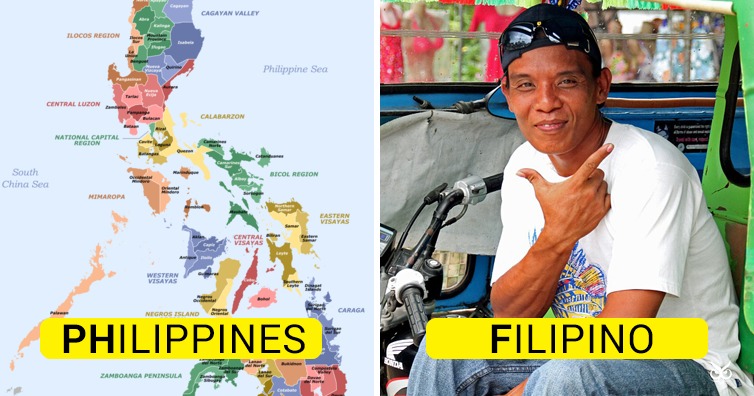I don’t know about you, but i’ve always wondered that: why is a person from Philippines called Filipino when the country is clearly spelled with a ‘Ph’?
Well, it was about time to have an article answering this question. As it turns out, the answer lies in the history of the islands and it’s not as complex as you think.
So, here’s how it goes: (the article continues after the ad)
Simply said, someone from Philippines is called Filipino because the word comes from Spanish name of the country: las Islas Filipinas. You see, the Spanish were originally calling the islands San Lázaro but in the mid-16th century the name was changed to las Islas Filipinas after King Philip II (Felipe in Spanish).
When the name was transferred into the English language, the name was changed to “The Philippines” in order to match the English “Ph” spelling of Phillip. However, the English never had a suitable name for the people of Philippines – “Philippine” or “Philippinian” just didn’t sound right so they adopted the ‘Filipino’ as it was used in Spanish – with an ‘F’ and with the suffix ‘ino’.
Interestingly, when the Filipinos developed their own national language at the end of the 1800s, they called it Pilipino – with a ‘P’. That is because the language is based mainly on the Austronesian language of Tagalog which has no ‘F’ sound.
And now you know!
If you like what you read, then you will definitely love this one: This Is The Difference Between ‘Latino’ And ‘Hispanic’
Photo: Wikimedia, MonicaVolpin / Pixabay
Photoshop: I’m A Useless Info Junkie
Sources: Why isn’t it spelled “Philippino?” | Why is “Filipino” spelled with an “f”? | Why is Filipino spelled with an ‘F’ when the Philippines is spelled with a ‘Ph’?



